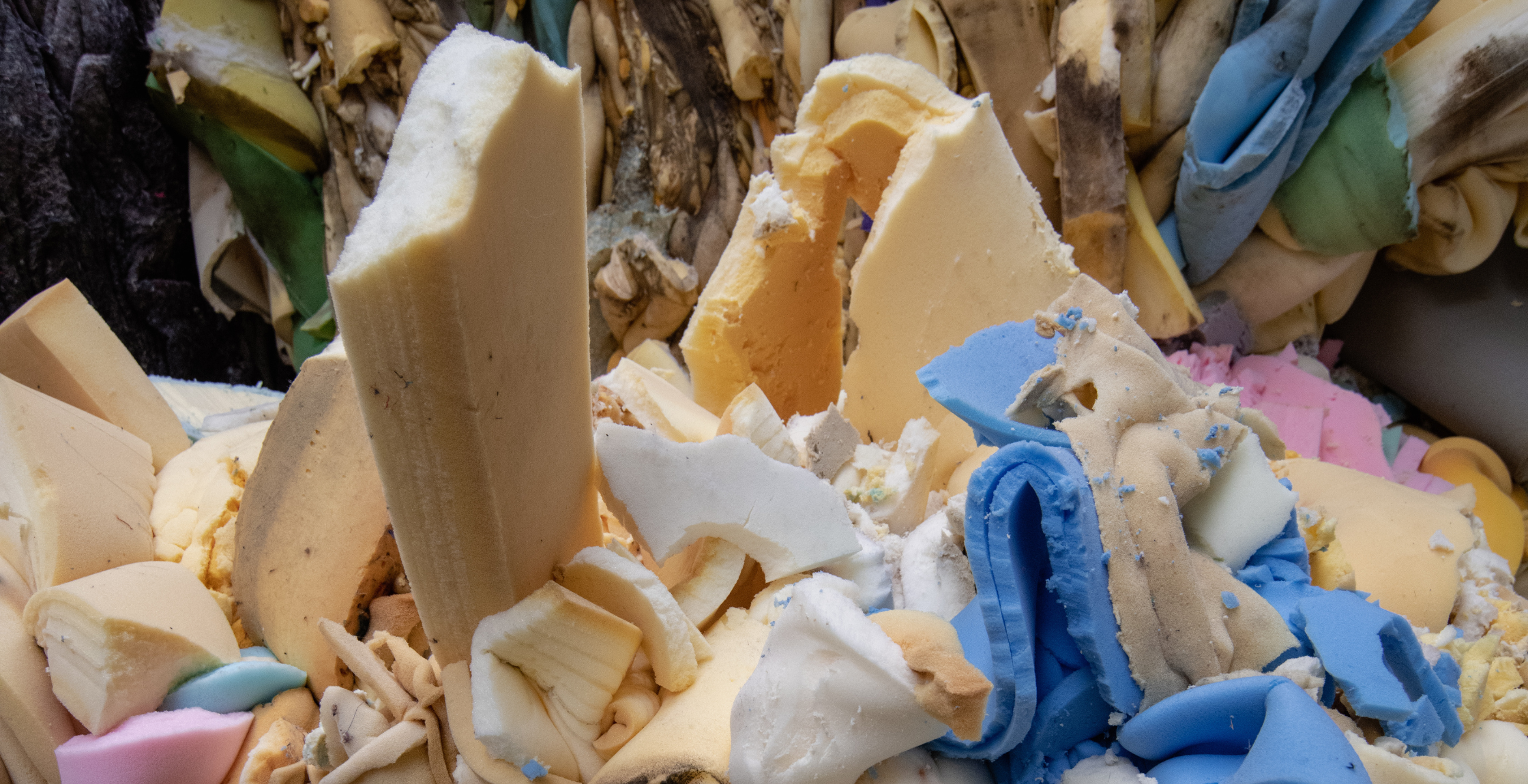Home Mattress Recycling
Need to recycle your old mattress?
Our sister company, The Mattress Recycling People, can take care of it!

Persistent organic pollutants, also known as POPs are highly toxic chemicals that can stay in the environment for a long time and travel via water and the atmosphere – they have even been discovered in remote places such as the Antarctic. They can collect within humans and animals, and are found in higher concentrations at higher levels within the food chain.
POPs are the unwanted by-products of industrial processes and the incorrect use and disposal of agrochemicals and industrial chemicals, commonly sourced from manufacturing plants across the world.
POPs can be present in older items of furniture. While these are now banned, older furniture is still in use by many households and businesses, meaning that it will be a long time before POPs are not an issue.
These types of furniture include:
POPs pose a serious threat to our planet’s ecosystem, wreaking havoc on our wildlife, planets and animals. The toxic chemicals can wipe out species and cause significant harm to animals, even passing on defects from mothers to their offspring.
POPs are also classed as toxic waste and cannot be disposed of at general landfill sites. Previously persistent organic pollutants have been disposed of via landfill sites which has caused toxins to seep into and contaminate surrounding land.
There are a range of serious health issues brought about by even low-level exposure to POPs including an increased risk of cancers, alteration of the immune system, neurobehavioural impairment, reproductive issues, endocrine disruption, genotoxicity and increased birth defects.
Persistent organic pollutants are incredibly toxic and classed as a danger to human life.
The Environment Agency introduced new legislation on January 1st 2023 about the storage and disposal of waste upholstered domestic seating containing Persistent Organic Pollutants (POPs). This includes a range of domestic items such as sofas, beds, armchairs, bean bags and stools. The legislation states that items containing POPs can no longer be disposed of in landfill sites and must be incinerated.
The manufacture, sale and use of products containing POPs is also now banned and the use of persistent organic pollutants in both chemical products and articles are also restricted.
The Stockholm Convention on Persistent Organic Pollutants is a global treaty created with the aim of protecting human health and the environment from chemicals that stay in the environment over long periods of time and cause irreversible harm to humans and wildlife.
Waste producers must now identify waste they produce and if they do or do not contain POPs, avoid contamination of materials that do or don’t contain POPs and prevent damage to POPs contaminated items ahead of collection or incineration.
Councils across the UK have been given legislation to change their services and processes for waste collection to make sure they are compliant around the disposal of POPs. Waste containing Persistent Organic Pollutants should not be recycled or reused under any circumstances.
One major impact of the new legislation will be on the local councils’ bulky item collections, which will now require items including POPs to be separated from any other items which are free from Persistent Organic Pollutants, therefore forcing councils to operate two collection services.
Mattresses are not included within the new POPs guidance and therefore can continue to be recycled and reused as normal, helping to reduce the amount of bulky waste ending up in landfill and negatively damaging the environment.
However, many people may be unaware of this difference, choosing to fly-tip bulky waste alongside items that are currently unable to be collected by councils.
Discover how our recycling service is helping a range of businesses and brands to divert their waste away from landfill. Contact us today.
"*" indicates required fields
Need to recycle your old mattress?
Our sister company, The Mattress Recycling People, can take care of it!
X